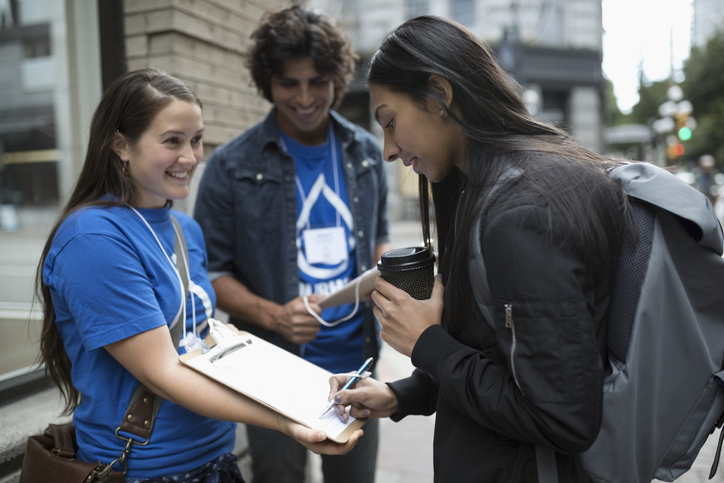
Five Tips on Joining the Political Campaign that’s Right for You
Every year and every election cycle, we all have important decisions to make about which political campaign to throw our time and resources behind. Whether you’re looking for a full-time job on a campaign, or simply a volunteer opportunity, it’s important to be thoughtful and strategic about which political campaign you choose.
- Decide what level you want to get involved at.
Are you interested in getting involved in a local, statewide, or nationwide political campaign? Though it’s easy to get excited by the idea of being a part of a presidential campaign, it’s important to remember that local and statewide campaigns are just as important and often lack the support that they need. What more, in smaller races, you have the opportunity to really see the impact of the work you put it.
- Decide what you are looking for in a candidate.
What characteristics are you looking for in a candidate? For example, are you looking for a career politician with years of government experience, or are you looking for someone new to politics who can bring a fresh perspective? If you’re considering candidates for local office, is it important that they’ve been lifelong residents, or do you value someone who has left the community for career opportunities but returned with more knowledge and skills to bring to the community? Are you looking for a candidate who is pragmatic and policy-focused, or for someone who is more about hope and unity?
- Define what issues are most important to you and where you stand on them.
When thinking about what issues are most important to you, there are two parts to consider. First, you want to think about which issue or set of issues are most important to you. Do you want a candidate who is fully focused on the environment and addressing climate change, or do you think universal health care is a more urgent need? Do you want a candidate whose main priority is raising the minimum wage, or one who is committed to finding solutions to the opioid addiction crisis?
The second thing to think about is where you stand on each issue. Though the Democratic party agrees on many issues broadly, as we know, there are factions within the party. For example, do you want to support a candidate that is committed to Medicare for All, or one who supports a public option as a supplement to private insurance? Do you support a universal income policy, or are you more supportive of traditional social services?
- Evaluate the candidate’s viability.
Even if you believe you have found the candidate you want to support, you want to do a quick evaluation of their viability – especially for statewide and local races. If there are multiple candidates in the race and the candidate you support is far behind in fundraising, that may not to be the campaign you want to work on. Or, for example, if other candidates are getting invited to debates but your candidate is not, you may want to dig further to figure out if your candidate has a path to victory.
- Evaluate the district.
For local and statewide political campaigns, it’s important to do your homework and look into the party makeup of the district. If it looks like the district isn’t flippable or the candidate isn’t right for the district, you may want to look into supporting a candidate in a swing district who has a path to victory.
Overall, when considering which political campaign to get behind, you should be both idealistic and pragmatic. Political campaigns are long and hard, so it’s important to make sure that you align with a candidate and their values. However, it’s just as important that you evaluate whether the candidate is viable and that the district is flippable. Have more questions? Check out this blog for more #winning campaign tips.